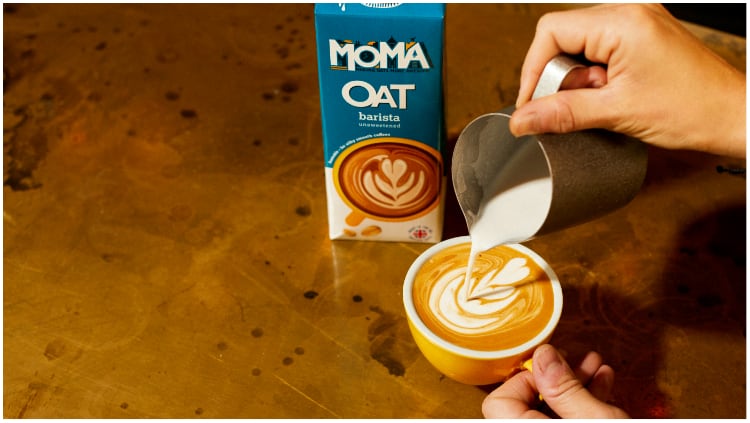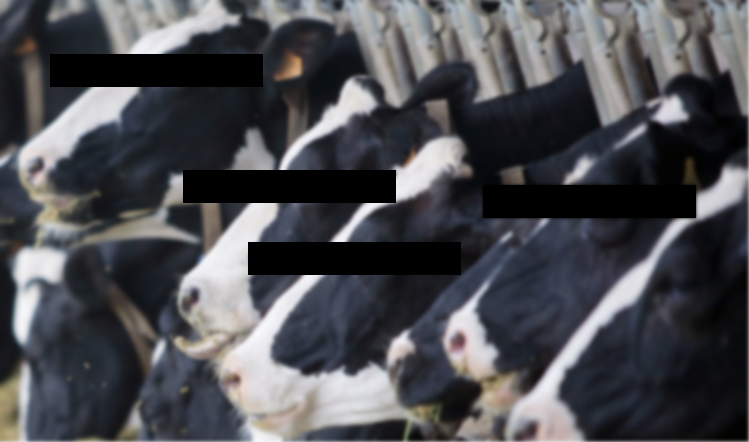UK oat milk producer, MOMA Foods, is collaborating with Teesside University’s National Horizons Centre to develop new ways of quality testing oat milk on site through the creation of a new monitoring tool that will analyse fat and protein content.
It will also be working with suppliers to find ways of optimising ingredients and developing new strains of enzymes to break down oats. This is an important step, as it helps the alternative to mimic milk’s ‘foamability’ and avoids it from splitting when added to hot liquid like coffee or tea.
Life after the filing cabinet: analysing enzymes
This isn’t the first time MOMA has carried out such research. Founded in 2006 by Tom Mercer, the brand started out in the breakfast market, selling on-the-go pots from a converted filing cabinet in Waterloo Station. Since then, it has rapidly expanded and in 2020 launched its first range of oat milk. The company was supported in the development of its oat drink range thanks to a Knowledge Transfer Partnership (KTP) in conjunction with Portsmouth and Teesside Universities.
This project, which was partially funded by Innovate UK, saw the brand working with researchers to refine its ingredients and ensure the right blend of enzymes were used to break down the starch in the oats.
The importance of academic collaboration
This latest research will see MOMA helping to fund a PhD studentship to work alongside Professor John S. Young of the Teesside University in a hope to optimise its products and give way to new lines.
Commenting on past and future collaborations, Mercer said: “By working with a university we were able to gain that depth of academic knowledge, helping to understand on a molecular level what it was we are trying to achieve. We’re hoping to take this even further through the PhD.”

He flagged the huge potential for oat alternatives in forging a greener path through the reduction of methane emissions and the fact it can rely on locally grown ingredients, but admitted it was still “a nascent industry” and therefore academic collaboration was a must.
“We want to be at the forefront of knowledge and work with our farmers and suppliers to understand exactly what delivers the best product," he continued. “To do this it’s vitally important that we bring academic knowledge into the industry and don’t operate in a silo - and working with Teesside University will help us to achieve this.”
Adding to this, Young stated: “Our ongoing relationship with MOMA has already delivered real impact by helping the company develop an innovative product which is not only creating jobs and new markets for the business but could have a real impact in reducing global emissions."
Interested in applying for the PhD studentship? Then click here.





